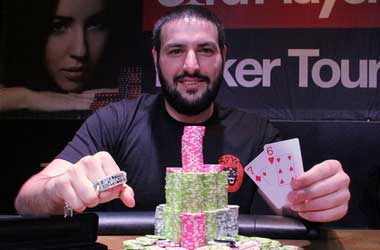Another interesting case involving infrared contacts centers on an Italian gambler named Stefano Ampollini. The 56-year-old was also caught in 2013 during a scam at Les Princes casino in Cannes, France. Ampollini spent €2,000 to purchase special contacts that allowed him to see markings on cards. It's alleged that during the poker game, one of the suspects wore contact lenses that could identify the marked cards that Feng was holding. Stefano Ampollini managed to rake in £60,000 in.
- Stefano Ampollini Poker Table
- Stefano Ampollini Poker Player
- Stefano Ampollini Poker Game
- Stefano Ampollini Poker Games
According to one of England’s top newspapers, three men have been sentenced to prison time for their roles in a 2011 cheating scandal in Cannes, France. In administering their sentence, the French courts also revealed how the men pulled off their scam that has been called “the first of its kind in Europe.”




Stefano Ampollini Poker Table
The London Daily Telegraph’s Henry Samueldocumented the sentencing of Stefano Ampollini for his actions at the Les Princes casino in Cannes during that August 2011 visit. Using infrared contact lenses that Ampollini bought from an online company in China (for €2000), Ampollini and his cohorts – Gianfranco Tirrito and Rocco Grassanno – were able to convince two employees of the casino to insert a specially marked deck (one that had invisible ink that was only visible with the contacts) into a Stud game at the casino. Using said deck, Ampollini was able to take down €70,000 in that game and, when he returned alone two months later, another €21,000.

Ampollini’s actions, however, had alerted the Les Princes security team that something might be amiss. “Casino security found his behavior rather strange as he won very easily,” Marc Concas, the attorney for the Groupe Lucien Barriere, which owns the Les Princes, is quoted by Samuel. “Furthermore, he was able to fold twice with an excellent hand, suggesting that he knew the croupier’s cards.”
Stefano Ampollini Poker Player
Further investigation revealed the plot between the trio of Italians through telephone surveillance of their discussions. Obtaining cards from their accomplices inside the Les Princes, the marking was done on the cards and, once properly repackaged, put back into usage in the casino. When the Italians returned, their accomplices were ready to put those marked cards on the table for the plot to reach fulfillment.
Ampollini admitted in court that the plot could have gone even farther had it not been sniffed out by authorities. Ampollini confirmed that he had given several pairs of the special contact lenses to “friends” that he would not name, giving rise to speculation that other situations – not as extreme as Ampollini’s over €90,000 score – could have taken place but just weren’t caught.
Stefano Ampollini Poker Game
While presiding Judge Marc Joando was impressed with the level of sophistication of the scheme, that didn’t stop him from hammering those involved. Ampollini was sentenced to two years in prison and a €100,000 fine; Tirrito earned a three year sentence and a €100,000 fine (due to the court’s belief that he was the “mastermind” behind the actions), and Grassanno earned a 2½ year prison term and a €50,000 fine.
Stefano Ampollini Poker Games
Samuel quotes Concas as saying that “this is the first time this sort of technique has been seen in Europe,” but it is hard to believe that is the case (it may be the first time someone got caught at it). A simple YouTube search brought up over 46,000 results for card marking techniques, including those that the Italian crew used in the Les Princes casino. Either through using special sunglasses or the contact lenses that were used in the Cannes case, it is obviously easy to perform the marking technique and put it into usage; the tough part, which the Italians were able to circumvent through the cooperation of casino employees, is getting them into the game without issue.
The case at the Les Princes casino isn’t the only one that has befallen the French gaming industry. In 2010, German poker player Ali Tekintamgac was disqualified from a tournament in Cannes on the Partouche Poker Tour for using co-conspirators that masqueraded as “tournament reporters” that would feed him information on what his opponents’ cards were. In 2009, the PPT was once again targeted for cheating between Jean-Paul Pasqualini and Cederic Rossi, who allegedly used hand signals to indicate their cards to each other in finishing 1-2 in the tournament. In those cases, however, no criminal action was taken.